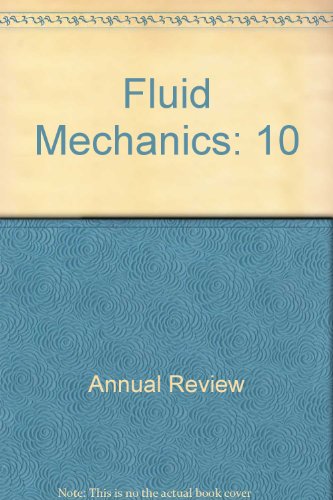Urban Fluid Mechanics, Resilience, and Sustainability
IF 30.2
1区 工程技术
Q1 MECHANICS
引用次数: 0
Abstract
This review first examines how urban wind flow impacts the sustainability and resilience of cities and identifies the three main challenges in predictive modeling of urban flows: the complexity of the flow physics, the variability and uncertainty in the flow conditions, and the diversity and multiscale nature of urban geometries. To review the complexity of the flow physics, the typical flow patterns observed in canonical urban flows are summarized, and related modeling challenges and opportunities in both wind tunnel experiments and simulations are highlighted. Next, opportunities to predict realistic urban flows by addressing the other challenges are explored through the lens of a modeling framework with uncertainty quantification. The important role of field measurements, supporting the more accurate characterization of uncertainties in the flow conditions, as well as enabling validation with real-world data, is emphasized. The review concludes with two specific examples that demonstrate how integrated use of field measurements and computational models can improve the understanding and modeling of real urban flows to ultimately support sustainable development goals for urban areas.城市流体力学,弹性和可持续性
本文首先考察了城市风如何影响城市的可持续性和弹性,并确定了城市风预测建模的三个主要挑战:流动物理的复杂性、流动条件的可变性和不确定性,以及城市几何形状的多样性和多尺度性质。为了回顾流动物理的复杂性,总结了典型城市流动中观察到的典型流动模式,并强调了风洞实验和模拟中相关建模的挑战和机遇。接下来,通过具有不确定性量化的建模框架,探讨了通过解决其他挑战来预测现实城市流量的机会。强调了现场测量的重要作用,支持更准确地表征流动条件中的不确定性,并能够通过实际数据进行验证。报告最后列举了两个具体的例子,说明实地测量和计算模型的综合使用如何能够提高对实际城市流动的理解和建模,从而最终支持城市地区的可持续发展目标。
本文章由计算机程序翻译,如有差异,请以英文原文为准。
求助全文
约1分钟内获得全文
求助全文
来源期刊
CiteScore
54.00
自引率
0.40%
发文量
43
期刊介绍:
The Annual Review of Fluid Mechanics is a longstanding publication dating back to 1969 that explores noteworthy advancements in the field of fluid mechanics. Its comprehensive coverage includes various topics such as the historical and foundational aspects of fluid mechanics, non-newtonian fluids and rheology, both incompressible and compressible fluids, plasma flow, flow stability, multi-phase flows, heat and species transport, fluid flow control, combustion, turbulence, shock waves, and explosions.
Recently, an important development has occurred for this journal. It has transitioned from a gated access model to an open access platform through Annual Reviews' innovative Subscribe to Open program. Consequently, all articles published in the current volume are now freely accessible to the public under a Creative Commons Attribution (CC BY) license.
This new approach not only ensures broader dissemination of research in fluid mechanics but also fosters a more inclusive and collaborative scientific community.

 求助内容:
求助内容: 应助结果提醒方式:
应助结果提醒方式:


